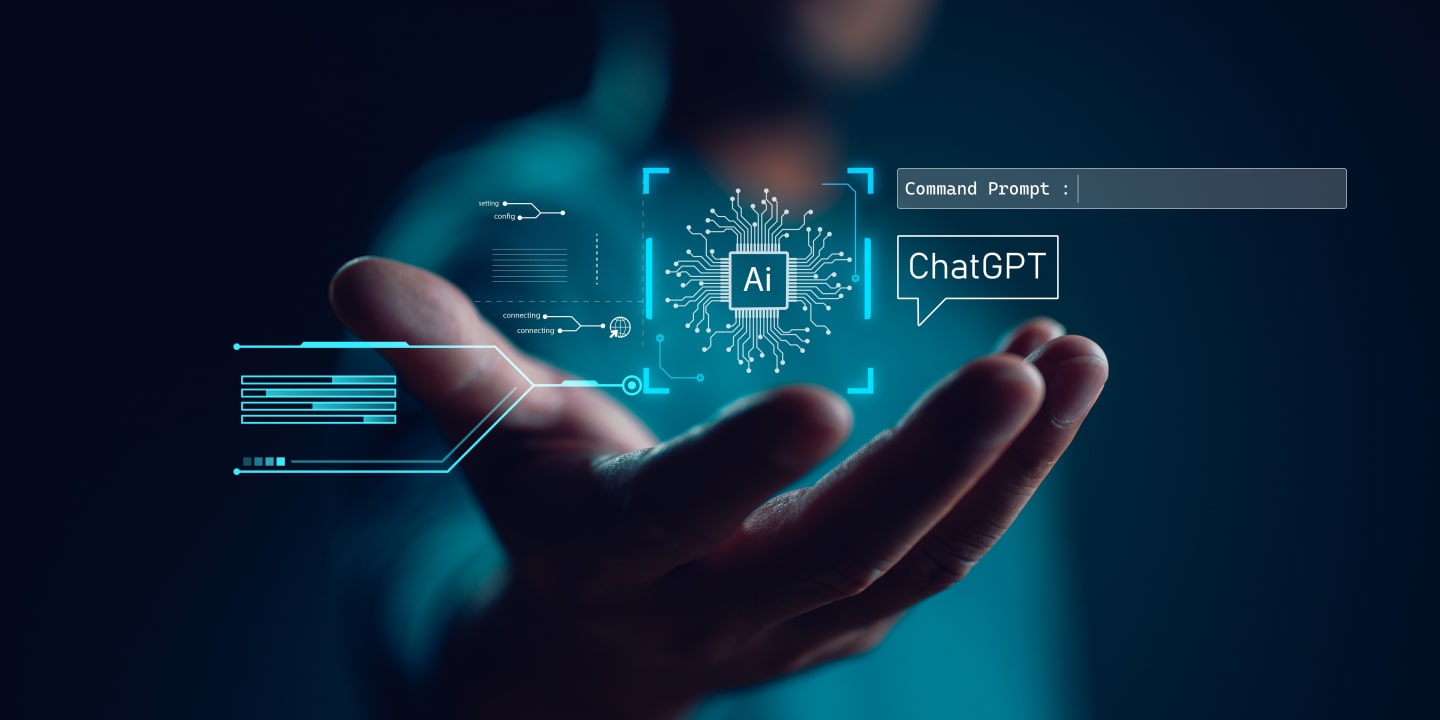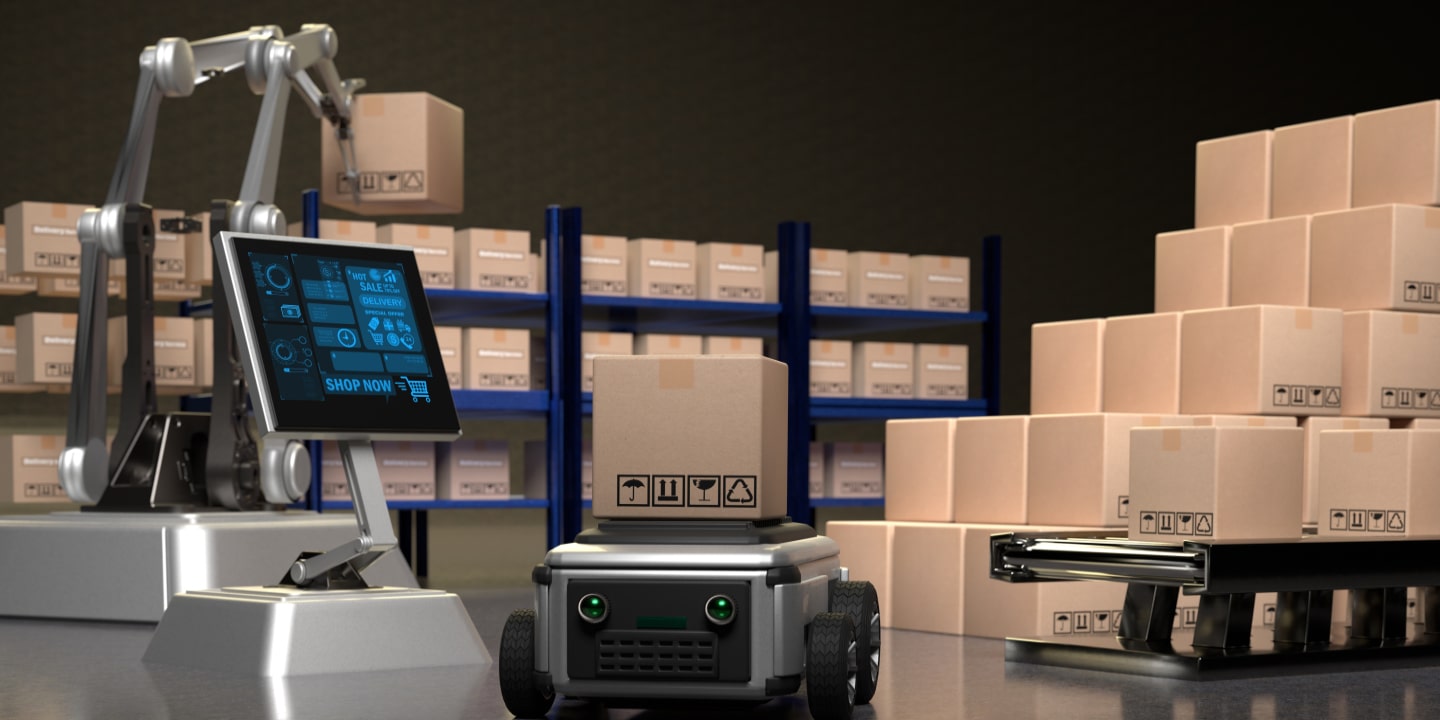The Role of AI in Decision Making: Key Examples
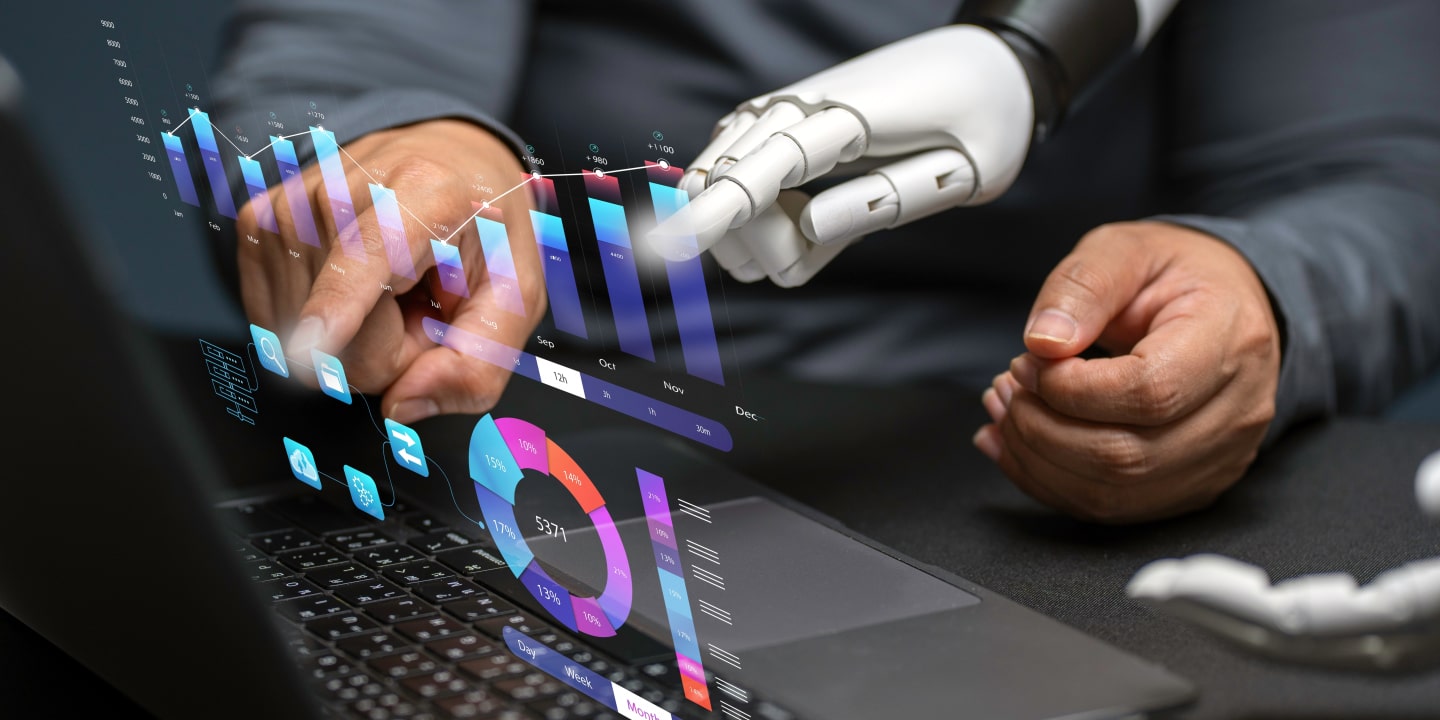
The role of Artificial Intelligence (AI) in decision-making processes has become crucial. Businesses are achieving unparalleled precision and speed. We will guide you through how AI reshapes strategic planning and operational efficiency. Prepare to explore how AI is an aid and a driving force in business decisions.
Banks are already enhancing customer relationships and reducing costs through the use of artificial intelligence in guiding customer interactions. Achieving success in this endeavor necessitates the inclusion of appropriate decision-making components in their capability stacks. This article leverages Django Stars expertise to illuminate the role of AI in decision-making.
AI-Driven Decision-Making: A Competitive Edge
Artificial Intelligence (AI) for decision-making transforms business offering a competitive edge. AI enhances processes, boosts efficiency, and reduces costs.
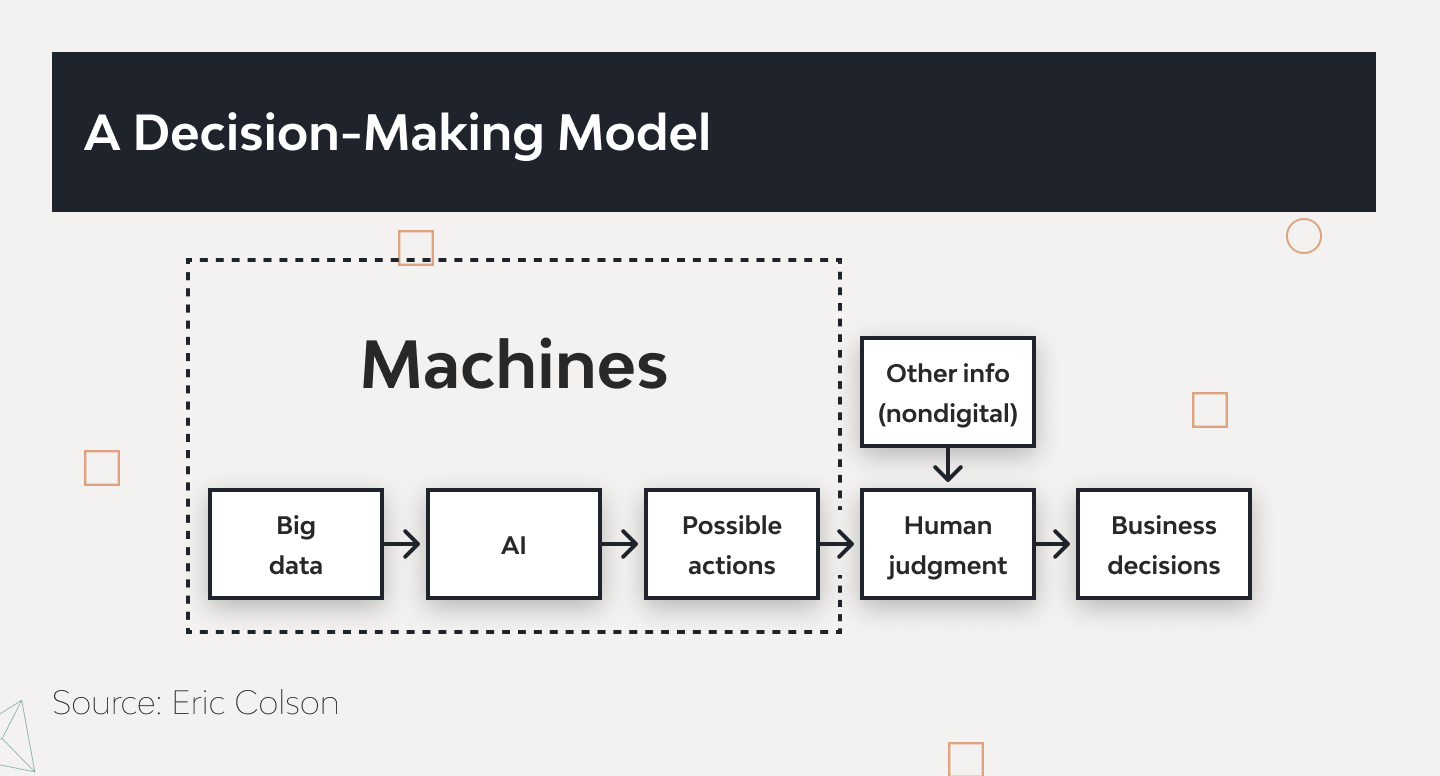
AI’s power in analyzing vast datasets is a game-changer. In sectors like finance and healthcare, this translates to a significant advantage. Finance firms, for instance, leverage AI for sharper market and investment insights.
AI-driven decision-making is crucial for anticipating market trends and customer needs in predictive analytics. Retailers use AI to analyze buying patterns and shape inventory and marketing strategies. Amazon’s AI system has spiked sales by 29% after analyzing over 150 million accounts.
AI has revolutionized customer service through virtual assistants and chatbots. These tools handle multiple queries simultaneously, improving response times and customer satisfaction. Staying abreast of conversational AI trends is key for businesses aiming to enhance their customer interaction and service quality. Gartner predicts that by 2025, 30% of outbound marketing messages from large organizations will be synthetically generated. The deployment of an artificial intelligence voicebot enhances customer engagement by offering more intuitive and interactive communication options. AI also excels in risk management. It analyzes data to predict risks and suggest mitigation strategies.
Real-World Examples of AI in Decision Making
The business world is buzzing with AI advancements. It’s fascinating to see how different industries are embracing this tech marvel. Let’s dive into some real-life artificial intelligence in decision making examples. We’ll see how AI is reshaping the business world.
Expanding the AI Horizon: More Industry Insights
Finance
AI is like a financial whiz kid in this sector. For example, American Express uses machine learning algorithms to analyze transaction data. This helps them detect fraud in milliseconds, saving millions in potential losses.
Another fascinating use is in investment. Robo-advisors, like Betterment, are using AI to provide personalized investment advice to clients, making smart investing accessible to everyone.
Retail
AI is the ultimate shopping assistant. You can take, for instance, the AI-powered chatbots that H&M uses. These chatbots help customers find the perfect outfit by providing personalized recommendations based on their style preferences.
Another excellent example is Walmart’s use of AI for inventory management. They use machine learning to predict which items will be in demand, ensuring their shelves are always stocked with what customers want
Manufacturing
AI in manufacturing is like having a futuristic foreman. Siemens uses AI for predictive maintenance in their gas turbines. This AI analyzes sensor data to predict potential failures before they happen, reducing downtime and saving costs.
Another example is General Electric, where AI can optimize decision-making for the efficiency of its wind farms. Their AI algorithms analyze data from wind turbines and adjust them in real time to maximize energy production based on wind conditions.
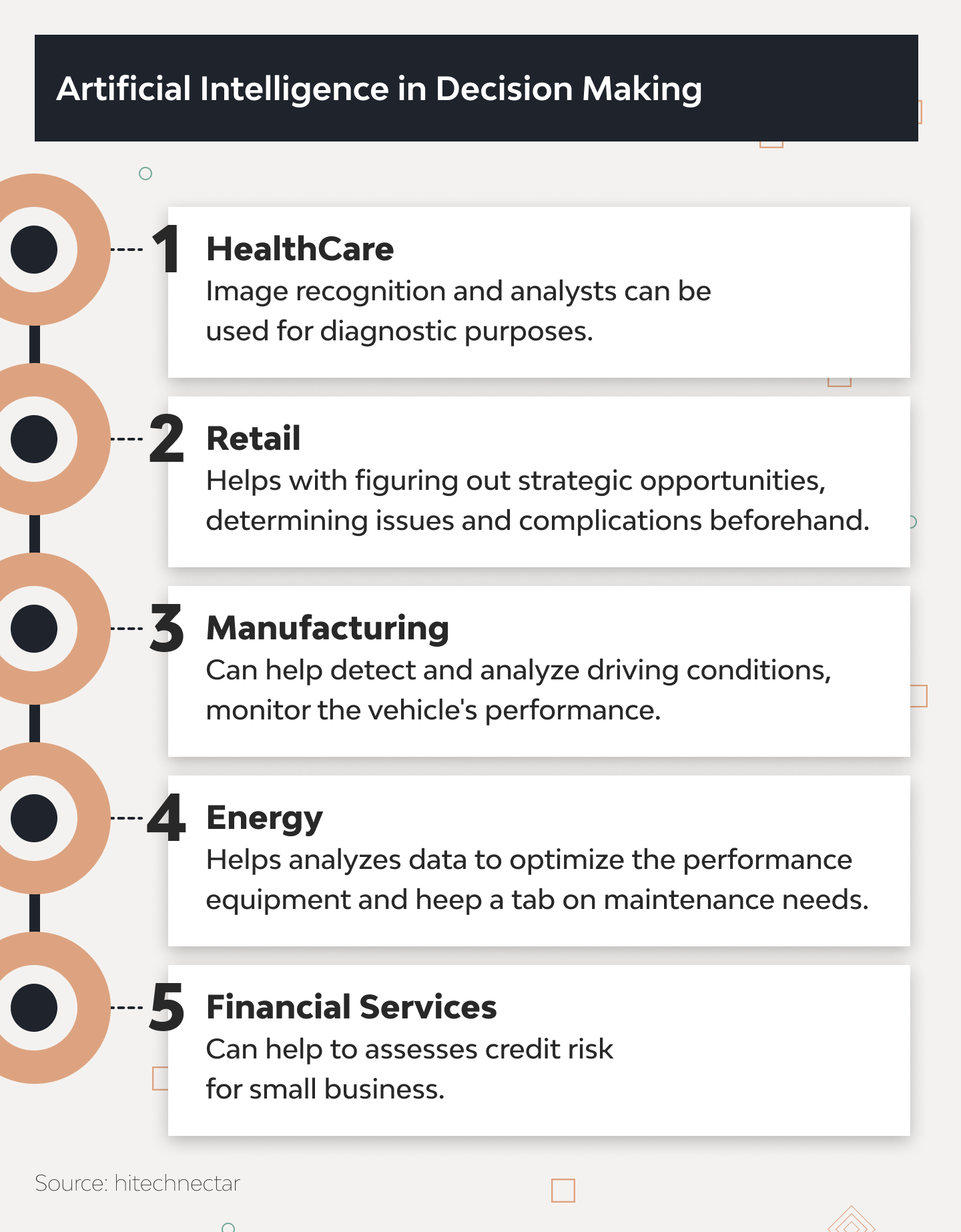
Healthcare
AI is a game-changer in healthcare. Google’s DeepMind Health assists doctors by analyzing medical images to detect diseases like cancer earlier and more accurately.
IBM’s Watson is another standout example. It helps doctors make better treatment decisions by analyzing vast medical data and providing insights based on the latest research.
Transportation
Self-driving cars are perhaps the most talked-about AI application in transportation. Companies like Tesla and Waymo lead the charge. They’re using AI to process data from sensors and cameras for safe autonomous driving.
DHL uses AI to optimize delivery routes. It’s reducing fuel consumption and improving delivery times. Their AI systems analyze traffic patterns, weather conditions, and package sizes to find the most efficient delivery paths.
Each of these examples of AI in decision making underscores AI’s versatility and transformative power across different sectors. From fashion recommendations to predictive maintenance and even self-driving cars.
AI for Strategic Decision Making: The Game-Changer for Businesses
Imagine having a trusted advisor who never sleeps, constantly analyzes the market, and gives you insights you’d probably miss. That’s AI for decision-making. It’s not just crunching numbers. It’s helping businesses see the bigger picture and make decisions that are not just smart but also forward-thinking.
How AI is Redefining Market Analysis
Picture AI as a super-smart detective. It dives into oceans of data to unearth trends, understand what customers think, and even predict what they’ll want next. For example, tools like Crayon are revolutionizing how companies keep an eye on their competitors. They track everything from website changes to social media posts giving businesses a 360-degree view of their competition.
Giants like Amazon and Alibaba use AI to stay in the game. They analyze what you browsed last week to predict what you’ll buy next. It’s ensuring their warehouses are stocked just right and their ads hit the mark.
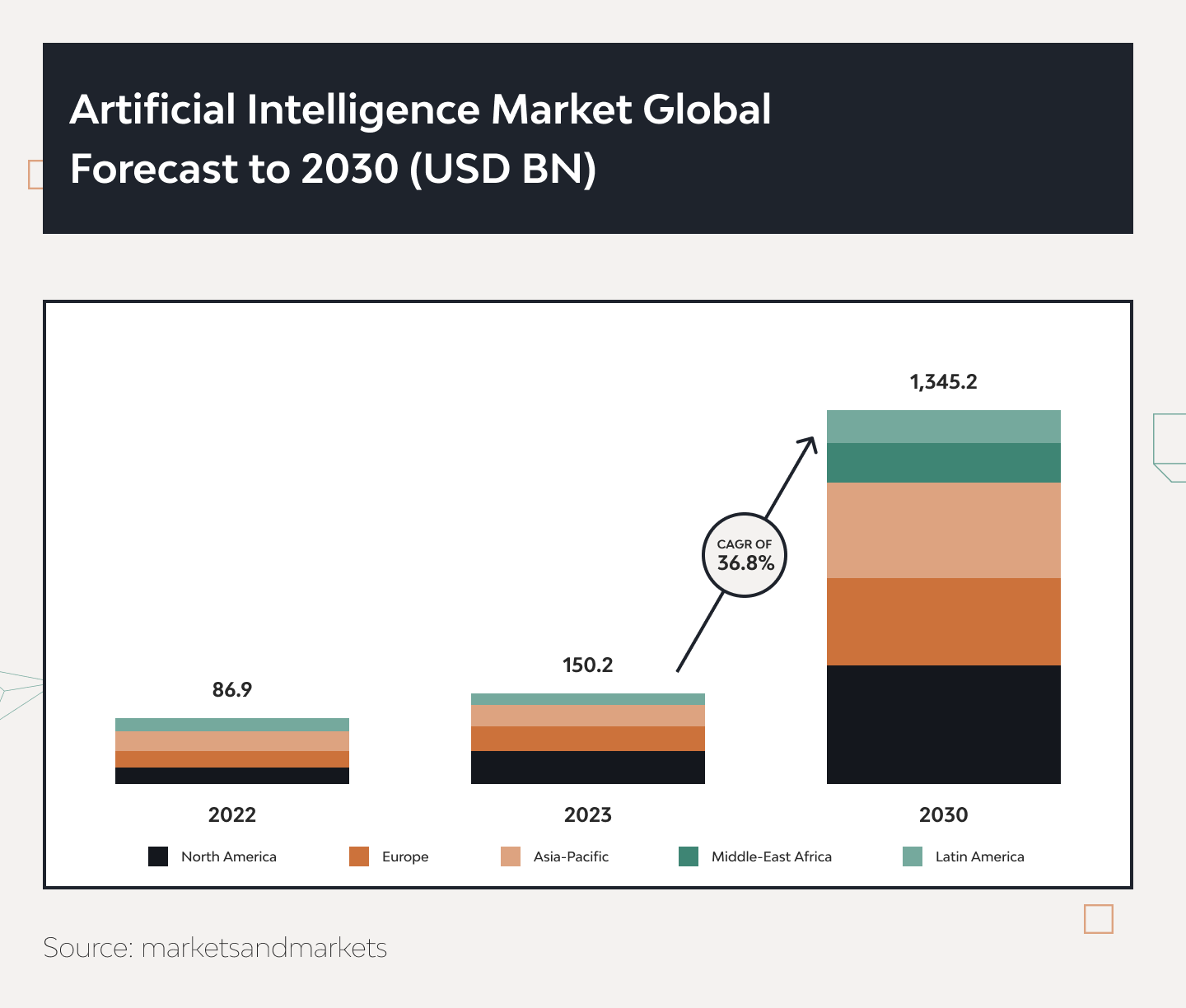
AI: The Modern Financial Guru
Regarding investment, AI is like that financially savvy friend we all wish we had. It’s reshaping how institutions handle investments. Robo-advisors, for instance, are a big hit. They use algorithms to manage portfolios, making investing less about gut feeling and more about intelligent, data-driven decisions. Betterment and Wealthfront are leading this trend, offering personalized investment strategies with a touch of AI.
And it’s not just about where to invest. AI is a pro at risk assessment. It looks at market trends, past data, and economic indicators to tell businesses what might be risky and worthwhile.
AI: The Master of Scenario Planning
Imagine playing chess against a computer that can imagine a million moves ahead. But you may ask how artificial intelligence helps in decision-making. That’s AI in scenario planning. It helps businesses play out different ‘what if’ scenarios. What if the market dips? What if a new technology disrupts the industry? AI allows companies to prepare for these futures.
AI is like a lighthouse guiding ships in a stormy sea in strategic planning. It analyzes market trends and internal performance continuously and advises businesses on when to pivot, expand, or pull back. IBM’s Watson is a prime example – it’s not just analyzing data. it’s uncovering growth opportunities and helping businesses venture into new territories.
AI in decision-making is not just about making more intelligent decisions. It’s about being prepared for the future, whatever it may bring. AI shapes business strategies for a rapidly evolving world with its ability to analyze, predict, and advise.
Operational Efficiency through AI
The magic of AI is a powerhouse for streamlining everyday operations. From making supply chains more efficient to revolutionizing HR management, AI is the ultimate multitasker in the business world.
Supply Chain Optimization
AI takes supply chain management to a whole new level. It’s like having a super-smart assistant that predicts your needs before you know it. For instance, in logistics, companies like UPS use AI to optimize delivery routes. This saves time and cuts down fuel costs significantly. Their ORION (On-Road Integrated Optimization and Navigation) system analyzes real-time delivery routes and saves millions of miles and tons of fuel each year.
AI predicts supply needs in manufacturing and helps companies avoid overproduction or stockouts. A great decision making AI example is how Intel uses AI for supply chain forecasting. They’ve saved millions in inventory costs by anticipating demand more accurately.
Revolutionizing HR Management
AI in HR is like having a personal recruiter on your team. It helps in screening resumes and even conducting initial interviews. AI-driven HR tools like Mya Systems use natural language processing to engage with candidates, ask relevant questions, and provide quick responses. This speeds up the hiring process and ensures that candidates have relevant experience.
AI also helps with employee retention. IBM uses its Watson AI to predict employee flight risk with 95% accuracy. Companies can take proactive steps to retain their top talent by understanding what keeps employees satisfied.
The Role of Python in AI Decision-Making Technology
Python has carved out its niche as the backbone of AI in decision-making technology. Let’s get into the specifics of why Python is not just popular but essential in AI development.
Why Python Reigns in AI
Python’s edge in AI comes from its unique combination of simplicity and power. It’s like the user-friendly interface to the complex world of AI. This accessibility means developers can focus on innovative AI solutions without getting tangled in complex syntax.
Tailored Libraries for AI
Python’s real power punch in AI comes from its specialized libraries. Libraries like TensorFlow and PyTorch offer a playground for machine learning, while Scikit-learn is perfect for data mining and analysis. These are catalysts for AI innovation. They simplify tasks like neural network creation or natural language processing, which would otherwise be daunting.
A Vibrant Python Community
The Python community is a goldmine for AI developers. It’s a space brimming with shared knowledge and collaborative problem-solving. This community-driven environment means that Python developers have access to a wealth of resources and support. This is invaluable in the fast-evolving landscape of AI.
Python in Action
Let’s look at practical examples. Python is behind Spotify’s song recommendation algorithms. It analyzes your music preferences to suggest new tracks and makes those recommendations eerily accurate. Python-driven AI algorithms are used in finance for real-time trading decisions and processing vast market data to identify investment opportunities.
Django Stars: Harnessing Python’s Power
At Django Stars, Python is more than just a coding language. It’s a key ingredient in delivering tailored AI solutions. By leveraging Python’s robust libraries and frameworks, Django Stars has crafted efficient logistics and data analysis decision-making AI models and made complex tasks like route optimization and predictive maintenance more streamlined and accurate.
Python’s role in AI is foundational and transformative. Its blend of simplicity, powerful libraries, and a supportive community makes it an invaluable asset in creating AI technologies that reshape industries and enhance everyday life.
Conclusion
We’ve delved into the transformative power of artificial intelligence in business decision-making and operational efficiency. We’ve seen how AI streamlines operations, optimizes supply chains, revolutionizes HR management, and plays a pivotal role in strategic planning and market analysis. The versatility of Python as the go-to language in AI development has also been highlighted, showcasing its crucial role in crafting innovative AI solutions.
At Django Stars, we are at the forefront of leveraging AI to drive business growth and efficiency. Our expertise lies in developing custom AI data-driven decision making solutions that cater to the unique needs of each business.
Our Unique Selling Points (UTPs) in AI Development
- Expertise in Python. Leveraging Python’s robust libraries and frameworks, we create sophisticated and efficient AI models.
- Custom AI Solutions. Tailored AI applications that fit seamlessly into your business decision-making processes.
- Industry-Specific Experience. Our team has a rich experience across various sectors ensuring solutions that understand and meet your industry’s unique challenges.
- End-to-End Support. We offer comprehensive support throughout the AI solution lifecycle, from conceptualization to deployment and maintenance.
What is the role of AI in strategic decision-making?
- AI plays a crucial role in strategic decision-making by providing deep data-driven insights, predictive analytics, and scenario planning. It helps businesses make informed and proactive decisions.
What is artificial intelligence reasoning and decision-making?
- Artificial intelligence and decision-making involve AI systems analyzing data, learning from patterns, and making decisions or recommendations based on that learning. It combines elements of machine learning, data analysis, and computational intelligence.
Does AI use human intelligence to make decisions?
- AI decision-making process doesn't use human intelligence per se. Instead, it mimics human decision-making processes using algorithms and machine learning. It analyzes and learns from data and makes decisions based on that learning, much like how humans learn from experience.
What solutions can I implement in my business?
- The AI solutions you can implement vary based on your industry and specific needs. Typical applications include predictive analytics for market trends, AI-driven customer service chatbots, automated HR processes, supply chain optimization, and AI-enhanced data analysis for strategic planning.
How does Python facilitate AI development?
- Python facilitates AI development through its simple yet powerful syntax, a wide array of AI-specific libraries and frameworks, and a large supportive community. This makes it an ideal language for developing efficient, scalable, innovative AI solutions.


